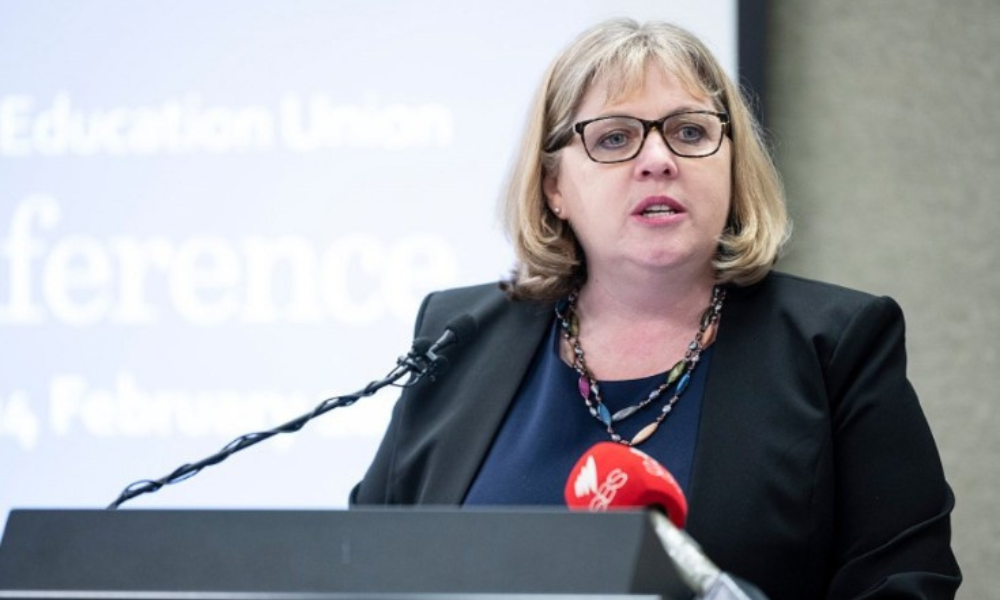
On Tuesday night, the Albanese Government passed The Better and Fairer Schools (Funding Reform) Act in Federal Parliament, paving the way for increased funding of Australia’s public schools.
Extra funding will now be able to flow to public schools to states and territories that have signed on to the Better and Fairer Schools Agreement, the deal set to replace National School Reform Agreement in January 2025.
The passage of the Act removes the funding ceiling that stops the Commonwealth providing more than 20% of funding to public schools, meaning the 20% contributed by the Commonwealth will become the minimum, not the maximum, that it contributes to public schools.
“This additional funding is not a blank cheque. It is tied to real and practical reforms to help children catch up, keep up and finish school,” Federal Education Minister, Jason Clare, said in a statement.
“The legislation will enable this to happen. It will also protect public school funding from ever going backwards.”
However, the Federal Government has come under fire after joining the Coalition in voting down an amendment by Senator Penny Allman-Payne that would have given public schools 100% of their Schooling Resource Standard (SRS) funding.
The Greens, the Australian Education Union and public education advocates Save Our Schools point out that the Federal Government’s 20% cap sets the floor at the previous (Coalition) government’s cap instead of the 25% that teacher unions and experts have called for – and allows the states to continue claiming 4% in non-classroom costs as part of their contributions.
“[Labor] has served up a reheated Coalition-era model that keeps the legislated share of Commonwealth funding at 20%, and doubles down on the Morrison era loopholes that allow the states to deduct 4% in non-classroom costs from their funding share,” Senator Allman-Payne said.
“This bill guarantees that every public school that is currently underfunded will still be underfunded in 10 years’ time.”
AEU Federal President Correna Haythorpe said Prime Minister Albanese’s commitment to fully fund public schools is in danger of being viewed as “a broken promise”, with outstanding negotiations yet to secure funding for all states.
“In the lead up to the last federal election Prime Minister Albanese promised to ensure that every public school was on the pathway to 100% full funding. Yet only 1.3% of public schools are funded at the SRS currently, the minimum cost of educating a child,” Haythorpe said.
“The Prime Minister must act now and negotiate new bilateral school funding agreements with each state and territory to ensure that all public schools are resourced at a minimum of 100% of the SRS by 2029. The 22.5% offer from the Albanese Government is inadequate and does not deliver on their promise.”
SOS National Convenor, Trevor Cobbold, slammed the move to vote down the Greens amendment as an “unconscionable betrayal of public school students and their parents” – particularly those who most need learning support.
“The effects will be felt by students, parents, teachers, and principals across Australia,” Cobbold said.
“Hundreds of thousands of low-SES, Indigenous, disabled, regional, and remote students will face restrictions in their learning due to the lack of full funding. Schools will continue to suffer from teacher shortages, out-of-field teaching, and overwhelming workloads.”
Independent Education Union – Queensland and Northern Territory (IEU-QNT) Branch Secretary Terry Burke said while the new arrangements acknowledge teacher workload and staff wellbeing, they fail to require specific and enforceable workload interventions at the school or system level.
“Employers must also be held to account for spiralling workloads in their schools,” Burke said.
“While the Act includes a workload impact assessment to ensure overworked school staff are not burdened by even more administrative tasks, we are calling on non-government school employers to genuinely engage with our union and IEU members on the issues of workload and work intensification.”
Burke said simply acknowledging the problem or offering vague reports on existing (and often inadequate) workload responses isn’t enough.
“Reforms need to mandate specific new workload measures supported by a stricter reporting regime and employers should be held to account by having to demonstrate workload reductions in their schools.”
The office of Federal Education Minister Jason Clare has been contacted for comment.
